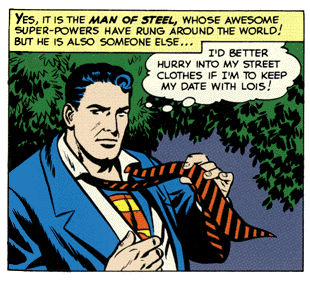Mice will play when the cat's gone. For schoolchildren, the cat is the teacher, and a substitute teacher is a licence to party. I once worked as a substitute teacher. In my interview for the position, I was asked, "What are three ways you maintain order in the classroom, and discuss each of these three ways in terms of your philosophy of education?"
They hired me, but they knew and I knew that survival in the classroom requires more than confidence, enthusiasm, and kisses. While schools have behaviour policies with serious consequences and occasional student-of-the-month type rewards, these are difficult for a stand-in to memorize five minutes before the bell.
My first assignment was a grade 8 class. The previous sub had left at 10:30 a.m. Much to the principal's surprise and relief, I stayed the whole day. I survived -- but I was not pleased. The students had a powerful tool to confound me: they knew their names and I did not. Much of the day had gone like this:
"You -- stop throwing those paper airplanes. What's your name?"
"Butthead."
There are always seating plans, but these aren't much good when they find out there's a sub. Not only does everyone sit where they like, but students wander in from the hall and insist they belong in my class. I needed a strategy. If I could address students by name, they would have to be accountable, and I'd have more control.
A week later, I was assigned a grade 6 in the same middle school. I decided that the students would wear nametags...but what if they gave me the wrong names? I felt doomed, but suddenly through my dark fear, a light began to shine. I would make wearing nametags a reward!
The day began with the usual rioting. During a momentary lull after O Canada, I said authoritatively, "I have nametags for you -- but not everyone's going to get one -- because to have a nametag means to have a real, true name -- a name of your own, a name that sets you apart from all others and declares, ‛I am me!' What happens when you have a name?"
Someone shouted, "People know what to call you."
"Exactly. And if they know what to call you -- they can call you for dinner. If they know what to call you, they don't say, ‛Hey you.’ They say, ‛Gee Anna, your story is great,’ or ‛Wow, John, that's a cool earring,’ but when you have no name, your identity is erased. You get blamed for other people's crimes. You disappear. When you have a true name, you are unique -- but you only get a nametag if you tell me your real name." I held my breath.
"I'll tell you my name," a boy in front piped up.
"OK, what is it?"
"William"
I gave the class their math assignment and promised to visit each desk and name each one of them while they worked. I hoped that the magic of being named would last till noon.
